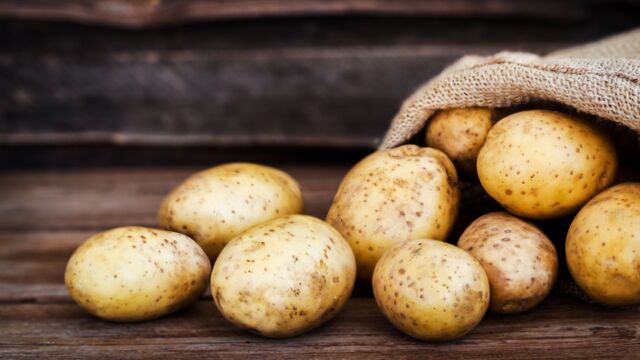More and more people are turning to organic products in order to avoid eating fruits and vegetables that have been contaminated with chemicals. However, consumers still tend to be reckless when it comes to this one basic food: potatoes.
Discover our latest podcast
Chemicals are used to make them grow to the same size
Because these root vegetables grow underground, most people think this means pesticides can’t reach them. This isn’t actually the case, as TV chef Nelson Müller claims to have discovered in his ‘food report’ which was broadcasted on the German TV channel, ZDF.
According to Müller, the biggest problem facing this market is that supermarkets want all their potatoes to be roughly the same ‘standard' size, about five to six centimetres long. Agricultural politician Karl Bär explains:
The problem is that […] retailers and consumers don’t want to buy potatoes that are different sizes.

Carcinogenic substances detected in potatoes
And this is exactly where the problem lies. To get potatoes to grow to roughly the same size, you have to use chemicals. In particular, the defoliant herbicide known as Diquat is used.
This herbicide is used to kill the above-ground, leafy green part of the potato plant so that photosynthesis can no longer take place and the plant dies. As soon as this agent is used, the potato cannot grow much bigger than it is at the time. However, Diquat can still find its way into the potatoes themselves. Even though there are defined limit values, this herbicide is still considered to be carcinogenic.
This substance has not only been found in the ground, but other products that are thought to be carcinogenic have as well. As part of the TV report, the team examined samples of soil which were used to grow potatoes in their lab and made quite an unsettling discovery. They also found insecticides and fungicides whose use has been banned in farming for a long time. Chloropropham, which is responsible for stopping cell division and also considered carcinogenic, was also detected in this soil.
Conclusion: organic potatoes are the best option
According to this study, four out of every eight bags of potatoes were cultivated in soil where chlorpropham was detected and are sold in a wide variety of big supermarkets. However, no dangerous chemicals were detected in any of the organic potatoes that the team examined. Maybe it’s high time you consider choosing organic potatoes instead.















